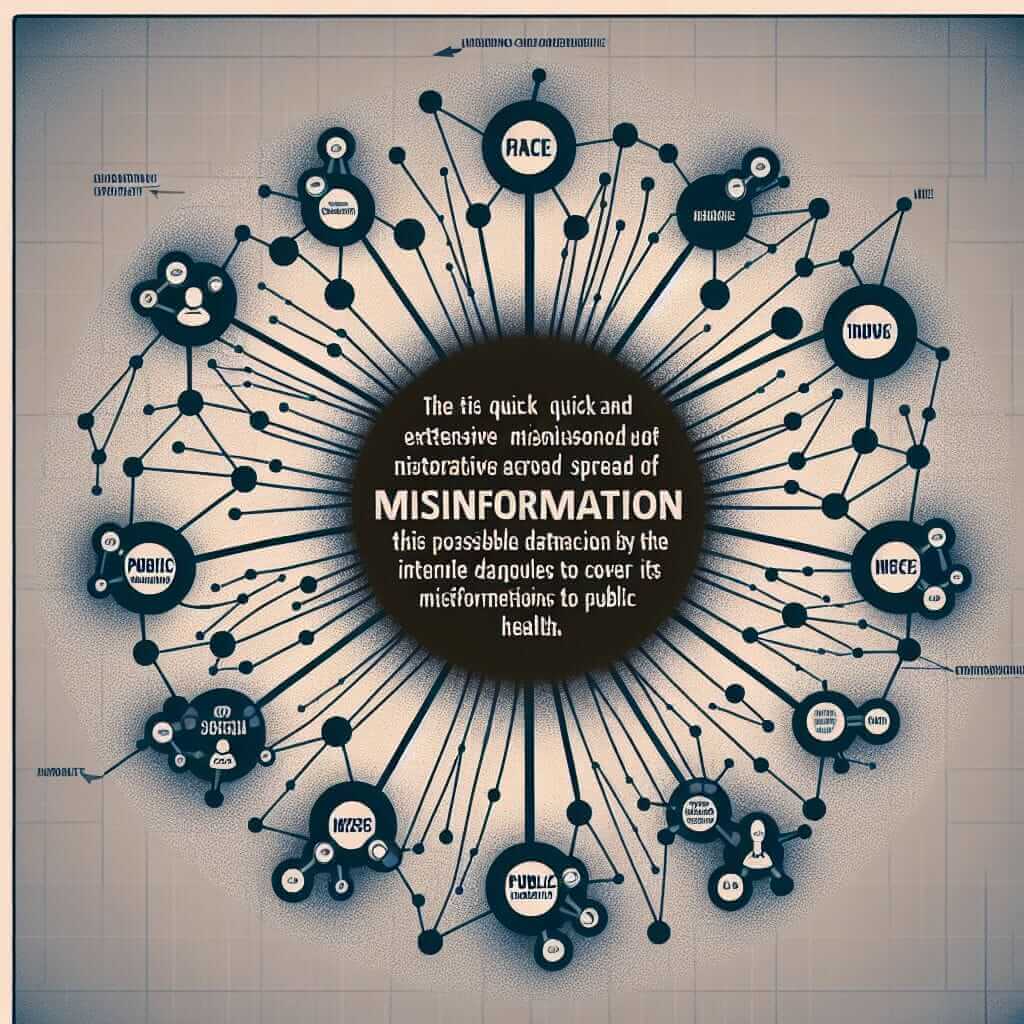The spread of misinformation, especially in the digital age, has profound implications for various facets of society, with public health being a prime example. This topic frequently appears in IELTS Writing Task 2, demanding test-takers to demonstrate their ability to analyze complex societal issues and present well-structured arguments.
Here are some potential IELTS Writing Task 2 questions related to this topic:
- Some people believe that the spread of misinformation poses a significant threat to public health. Others, however, argue that it is a minor issue with negligible consequences. Discuss both views and give your opinion.
- The internet has made it easier than ever for people to access health information. However, it has also led to the spread of inaccurate and potentially harmful health advice. What are the dangers of this trend, and what measures can be taken to address it?
- Governments and social media companies have a responsibility to combat the spread of misinformation online. To what extent do you agree or disagree?
Sample Essay: Analyzing the Impact of Misinformation
Let’s analyze the first question from the list above:
Some people believe that the spread of misinformation poses a significant threat to public health. Others, however, argue that it is a minor issue with negligible consequences. Discuss both views and give your opinion.
Essay Analysis
This question requires you to discuss two contrasting viewpoints on the impact of misinformation on public health. You need to present arguments for both sides before providing your own well-supported opinion.
Model Essay
In today’s interconnected world, information spreads with unprecedented speed and reach. While this accessibility can be beneficial, it also facilitates the proliferation of misinformation, raising concerns about its impact on public health. While some downplay the significance of this issue, I firmly believe that the spread of misinformation constitutes a serious threat.
Those who consider misinformation a minor issue often argue that people are capable of discerning truth from falsehood. They believe that critical thinking and access to reliable sources mitigate the potential harm of misleading information. Furthermore, they might point out that misinformation is not a new phenomenon and that societies have always grappled with rumors and inaccuracies.
However, the sheer volume and pervasiveness of misinformation in the digital age make it a far more potent force. The internet and social media platforms have created echo chambers where false information can be amplified and validated within closed networks, making it harder for individuals to encounter opposing viewpoints. Moreover, misinformation can have real-world consequences for public health. For instance, the spread of anti-vaccine sentiment online has been linked to outbreaks of preventable diseases. Similarly, false claims about miracle cures and harmful treatments can lead individuals to make detrimental health decisions.

In conclusion, while the ability to access information freely is undoubtedly valuable, it is crucial to acknowledge the dangers posed by the spread of misinformation. Its ability to distort perceptions, erode trust in credible sources, and ultimately jeopardize public health is undeniable. Addressing this issue demands a multi-faceted approach involving media literacy education, responsible use of social media platforms, and robust fact-checking initiatives to mitigate the harmful effects of misinformation.
(Word count: 289 words)
Writing Notes
- Structure: Ensure your essay follows a clear and logical structure. Use topic sentences to introduce the main idea of each paragraph and provide supporting evidence and examples.
- Vocabulary: Use a wide range of vocabulary related to information, health, and technology. Avoid repeating the same words or phrases multiple times.
- Grammar: Pay attention to grammar accuracy, especially subject-verb agreement, tense consistency, and the use of articles.
- Cohesion and Coherence: Use linking words and phrases to connect your ideas smoothly and create a coherent flow of information.
Vocabulary Builder
- Misinformation (n.) /ˌmɪsɪnfəˈmeɪʃən/: False or inaccurate information, especially that which is deliberately intended to deceive.
- Proliferation (n.) /prəˌlɪfəˈreɪʃən/: Rapid increase in the number or amount of something.
- Discerning (adj.) /dɪˈsɜrnɪŋ/: Having or showing good judgment.
- Mitigate (v.) /ˈmɪtɪɡeɪt/: Make something less severe, serious, or painful.
- Pervasive (adj.) /pərˈveɪsɪv/: Spreading widely throughout an area or a group of people.
- Echo chamber (n.) /ˈekəʊ ˌtʃeɪmbər/: An environment in which a person encounters only beliefs or opinions that coincide with their own, so that their existing views are reinforced and alternative ideas are not considered.
- Detrimental (adj.) /ˌdetrɪˈmentl/: Tending to cause harm.
- Credible (adj.) /ˈkredəbl/: Able to be believed; convincing.
- Robust (adj.) /ˈrəʊbʌst/: Strong and healthy; vigorous.
Conclusion
The impact of misinformation on public health is a multifaceted and significant issue that frequently arises in IELTS Writing Task 2. To effectively address such prompts, it is crucial to possess a nuanced understanding of the topic, support your arguments with relevant examples, and maintain a clear and well-organized essay structure. By incorporating these elements and continuously expanding your vocabulary, you can confidently approach this essay type and improve your overall IELTS writing score. Remember to practice writing essays on similar topics to further enhance your skills and exam preparedness.